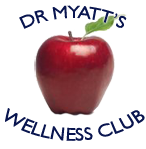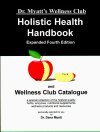Turmeric (Curcuma longa)
Antioxidant, Anti-inflammatory and
Anti-Cancer Herb
 Turmeric (also known as curcumin), the bright yellow root used for centuries as a cooking spice, is also a potent medicinal herb.
Turmeric (also known as curcumin), the bright yellow root used for centuries as a cooking spice, is also a potent medicinal herb.
Turmeric is:
- anti-inflammatory
- antioxidant
- liver-protective (on a par with milk thistle)
- anti-tumorogenic (helps prevent and may even help reverse tumors)
- and helps maintain normal blood viscosity.
What more could you ask for in a non-toxic, beautiful, fragrant herb?
Turmeric (Curcuma longa) This herb is a potent antioxidant and anti-inflammatory. An ever-growing body of evidence suggests that turmeric may both help prevent AND help reverse already-existing cancers.
Each High-Potency Capsule contains: 500 mg of turmeric, standardized to 95% curcuminoids. (475mg active curcuminoids).
Suggested dose 1 capsule, 2-3 times per day.
Product # 164 - Turmeric (60 Capsules) $21.95
Enter Quantity Desired and Click "Add To Cart" Button
Read Turmeric: Cancer-fighting Herb that Drug Companies are Rushing to Imitate
References
1.) Ji C, Cao C, Lu S, Kivlin R, Amaral A, Kouttab N, Yang H, Chu W, Bi Z, Di W, Wan Y. Curcumin attenuates EGF-induced AQP3 up-regulation and cell migration in human ovarian cancer cells.Cancer Chemother Pharmacol. 2008 Jan 23 [Epub ahead of print].
2.) Steward WP, Gescher AJ. Curcumin in cancer management: Recent results of analogue design and clinical studies and desirable future research. Mol Nutr Food Res. 2008 Jan 9 [Epub ahead of print].
3.) Shankar S, Ganapathy S, Chen Q, Srivastava RK. Curcumin sensitizes TRAIL-resistant xenografts: molecular mechanisms of apoptosis, metastasis and angiogenesis. Mol Cancer. 2008 Jan 29;7(1):16 [Epub ahead of print]
4.) Moiseeva EP, Almeida GM, Jones GD, Manson MM. Extended treatment with physiologic concentrations of dietary phytochemicals results in altered gene expression, reduced growth, and apoptosis of cancer cells. Mol Cancer Ther. 2007 Nov;6(11):3071-9.
5.) Shankar S, Chen Q, Sarva K, Siddiqui I, Srivastava RK. Curcumin enhances the apoptosis-inducing potential of TRAIL in prostate cancer cells: molecular mechanisms of apoptosis, migration and angiogenesis. J Mol Signal. 2007 Oct 4;2:10.
6.) Shankar S, Srivastava RK. Bax and Bak genes are essential for maximum apoptotic response by curcumin, a polyphenolic compound and cancer chemopreventive agent derived from turmeric, Curcuma longa. Carcinogenesis. 2007 Jun;28(6):1277-86. Epub 2007 Feb 2.
7.) Shankar S, Srivastava RK. Involvement of Bcl-2 family members, phosphatidylinositol 3'-kinase/AKT and mitochondrial p53 in curcumin (diferulolylmethane)-induced apoptosis in prostate cancer. Int J Oncol. 2007 Apr;30(4):905-18.
8.) Somers-Edgar TJ, Scandlyn MJ, Stuart EC, Le Nedelec MJ, Valentine SP, Rosengren RJ. The combination of epigallocatechin gallate and curcumin suppresses ERalpha-breast cancer cell growth in vitro and in vivo. Int J Cancer. 2007 Dec 20 [Epub ahead of print].
9.) Chen A, Xu J, Johnson AC. Curcumin inhibits human colon cancer cell growth by suppressing gene expression of epidermal growth factor receptor through reducing the activity of the transcription factor Egr-1. Oncogene. 2006 Jan 12;25(2):278-87.
10.) Wahl H, Tan L, Griffith K, Choi M, Liu JR. Curcumin enhances Apo2L/TRAIL-induced apoptosis in chemoresistant ovarian cancer cells. Gynecol Oncol. 2007 Apr;105(1):104-12. Epub 2006 Dec 15.
11.) Chen J, Wanming D, Zhang D, Liu Q, Kang J.Water-soluble antioxidants improve the antioxidant and anticancer activity of low concentrations of curcumin in human leukemia cells. Pharmazie. 2005 Jan;60(1):57-61.
12.) Deeb DD, Jiang H, Gao X, Divine G, Dulchavsky SA, Gautam SC. Chemosensitization of hormone-refractory prostate cancer cells by curcumin to TRAIL-induced apoptosis. J Exp Ther Oncol. 2005;5(2):81-91.
13.)Dobrovolskaia MA, Kozlov SV.: Inflammation and cancer: when NF-kappaB amalgamates the perilous partnership. Curr Cancer Drug Targets. 2005 Aug;5(5):325-44.
14.) Deeb D, Jiang H, Gao X, Hafner MS, Wong H, Divine G, Chapman RA, Dulchavsky SA, Gautam SC. Curcumin sensitizes prostate cancer cells to tumor necrosis factor-related apoptosis-inducing gand/Apo2L by inhibiting nuclear factor-kappaB through suppression of IkappaBalpha phosphorylation. Mol Cancer Ther. 2004 Jul;3(7):803-12.
15.) Van Erk MJ, Teuling E, Staal YC, Huybers S, Van Bladeren PJ, Aarts JM, Van Ommen B. Time- and dose-dependent effects of curcumin on gene expression in human colon cancer cells. J Carcinog. 2004 May 12;3(1):8.
16.)Ernst P.: The role of inflammation in the pathogenesis of gastric cancer. Aliment Pharmacol Ther. 1999 Mar;13 Suppl 1:13-8
17.) Menon LG, Kuttan R, Kuttan G. Anti-metastatic activity of curcumin and catechin. Cancer Lett 1999;141:159–65.
18.) Khafif A, Schantz SP, Chou TC, Edelstein D, Sacks PG. uantitation of chemopreventive synergism between (-)-epigallocatechin-3-gallate and curcumin in normal, premalignant
and malignant human oral epithelial cells. Carcinogenesis. 1998
19. Sreejayan N, Rao MNA. Free radical scavenging activity of curcuminoids. Arzneimittelforschung 1996;46:169–71.
20. Ramirez-Boscá A, Soler A, Gutierrez MAC, et al. Antioxidant curcuma extracts decrease the blood lipid peroxide levels of human subjects. Age 1995;18:167–9.
21. Arora RB, Basu N, Kapoor V, Jain AP. Anti-inflammatory studies on Curcuma longa (turmeric). Ind J Med Res 1971;59:1289–95.
22. Kiso Y, Suzuki Y, Watanbe N, et al. Antihepatotoxic principles of Curcuma longa rhizomes. Planta Med 1983;49:185–7.
23. Srivastava R, Dikshit M, Srimal RC, Dhawan BN. Anti-thrombotic effect of curcumin. Thromb Res 1985;40:413–7.
24. Menon LG, Kuttan R, Kuttan G. Anti-metastatic activity of curcumin and catechin. Cancer Lett 1999;141:159–65.




 Turmeric (also known as curcumin), the bright yellow root used for centuries as a cooking spice, is also a potent medicinal herb.
Turmeric (also known as curcumin), the bright yellow root used for centuries as a cooking spice, is also a potent medicinal herb.


